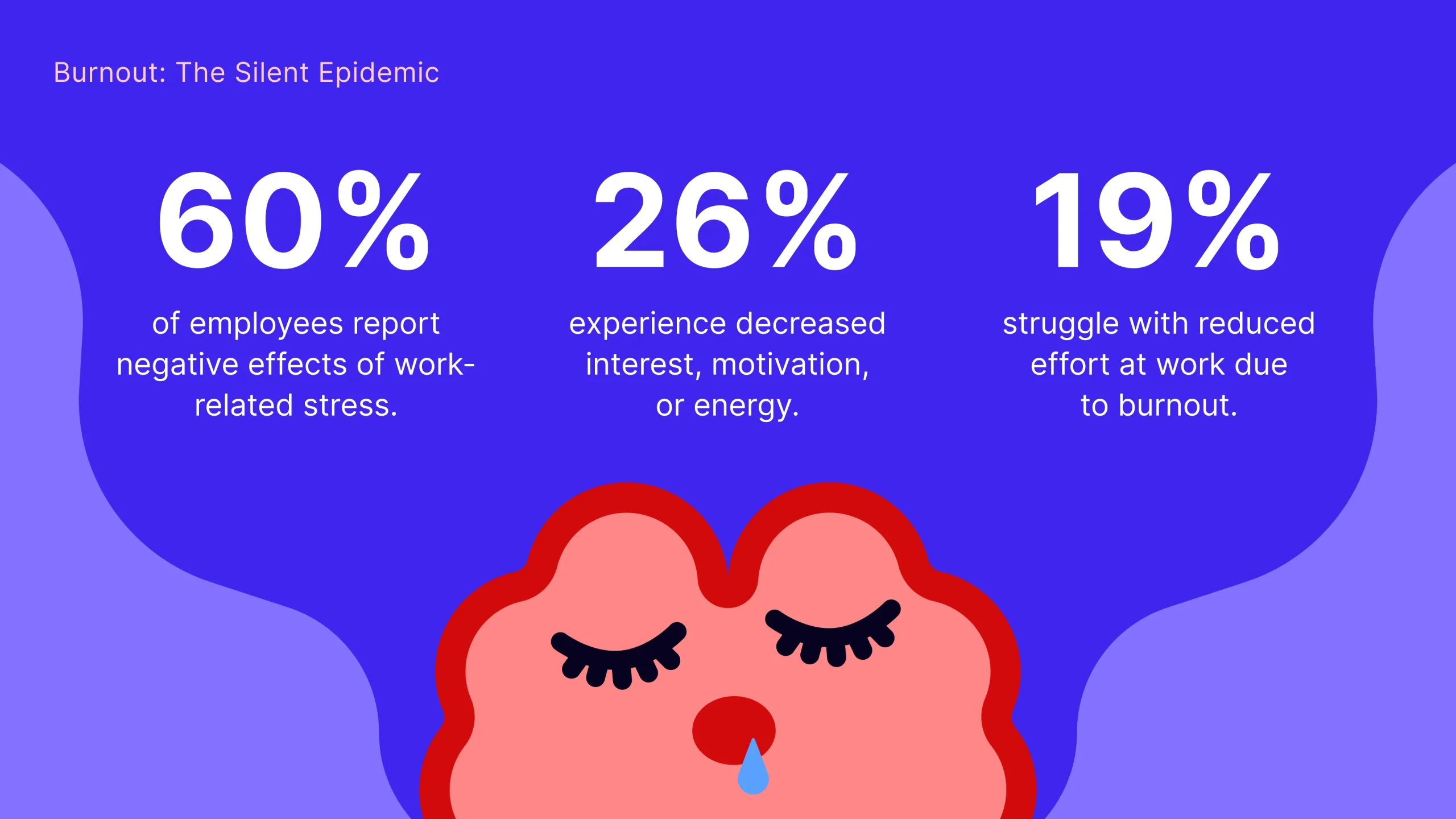Burnout is no longer a rare issue affecting only a few people. It has become a silent epidemic in workplaces across Australia and the world. Many employees push through long hours, heavy workloads, and high expectations without realising they are slowly burning out.
Unlike physical illnesses, burnout often goes unnoticed until it starts to affect every part of life, including work performance, relationships, and health. Understanding what burnout is, how to spot it, and how to prevent it is crucial to staying healthy and productive.
What is Burnout?
Burnout is a state of emotional, physical, and mental exhaustion caused by prolonged stress at work. It often occurs when you feel overwhelmed, emotionally drained, and unable to meet constant demands.
Over time, stress builds up and leaves you feeling empty, detached, and even hopeless about your job. While stress can sometimes motivate you to perform better, chronic stress that is left unmanaged leads to burnout.
Why Burnout is a Growing Concern
Burnout is a growing problem because many workplaces still reward overwork instead of balance. Remote work has blurred the line between home and office, making it harder for employees to switch off. High workloads, lack of support, and unrealistic expectations only make things worse. When employees are not given the right resources to care for their mental health at work, burnout becomes inevitable.
Common Signs of Burnout
Burnout does not happen overnight. It creeps in slowly, showing subtle signs before becoming severe. Learning to spot these signs early can save you from long-term damage.
1. Constant Fatigue
Feeling tired all the time, no matter how much sleep you get, is one of the earliest signs of burnout. This fatigue goes beyond physical tiredness and includes emotional exhaustion too.
2. Loss of Motivation
You may notice that tasks which once excited you now feel like a burden. You struggle to find meaning in your work, and even small tasks seem overwhelming.
3. Increased Irritability
Burnout often makes people short-tempered. You may become easily frustrated with colleagues, clients, or even family members outside of work.
4. Decline in Work Performance
As burnout progresses, concentration drops, mistakes increase, and productivity falls. This can create a vicious cycle where stress and self-doubt feed each other.
5. Physical Symptoms
Headaches, stomach problems, and frequent illnesses are common physical effects of burnout. Stress weakens the immune system, making you more prone to getting sick.
How to Prevent Burnout
The good news is that burnout can be prevented if caught early. Taking proactive steps to care for yourself and set boundaries can make a huge difference.
Prioritise Self-Care
Make time for activities that relax and recharge you. Whether it’s exercise, reading, or spending time with loved ones, self-care is not a luxury but a necessity.
Set Clear Work Boundaries
Avoid working outside of agreed hours as much as possible. Disconnect from work emails and calls during personal time. Setting boundaries helps you recover mentally after work.
Speak Up
Do not hesitate to talk to your manager or HR if your workload is becoming unmanageable. Open conversations about workload and expectations can lead to positive changes.
Build Strong Support Networks
Having supportive colleagues, friends, or mentors makes coping with stress easier. Sharing your struggles can provide relief and practical advice.
Seek Professional Help
If burnout symptoms persist, consulting a mental health professional is a wise step. Therapists can provide strategies to manage stress and improve resilience.
How Employers Can Help
Burnout is not just an individual problem. Organisations play a big role in preventing it by fostering a mentally healthy workplace. Employers can reduce burnout risks by promoting work-life balance, offering employee assistance programs, and encouraging open discussions about mental health at work. Training managers to recognise signs of burnout and provide support is equally important. When employees feel supported, engagement and productivity improve.
When to Take Action
Ignoring burnout can lead to serious consequences, including anxiety, depression, and long-term health problems. If you notice persistent symptoms such as exhaustion, loss of interest in work, or feelings of hopelessness, it’s time to act. Making small changes early on can prevent burnout from escalating into something harder to recover from.
Burnout may be a silent epidemic, but it does not have to take over your life. By recognising the early signs, setting boundaries, and seeking support when needed, you can protect your wellbeing and career. Employers also have a responsibility to create a healthy work environment where employees feel valued and supported. Remember, caring for your mental health at work is not a sign of weakness but a smart way to stay strong and successful in the long run.
Taking small steps today can stop burnout before it starts. Listen to your body, pay attention to your emotions, and never hesitate to reach out for help when needed. Your mental health is just as important as your physical health, and both deserve to be protected.

